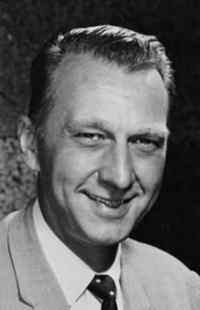Cutting the Gordian Knot, by Gregg Herken

Not all remembrances of him are so kind. One associate calls Merkle "a bull in a china shop." Concedes Hadley, "He wasn't interested in untying the Gordian knot. He cut it."
In fact, Merkle's impatience was legendary. Testifying before Congress on spaceships of the future, Merkle dubbed a nuclear rocket then under development at the rival Los Alamos lab "Old Pokey." He said he wanted to explore the cosmos in a near-light-speed, ion-propelled rocket.
The Pluto project helped steer Merkle's dream of the stars back down to Earth.
Still, he remained impatient. Engineer Blake Myers vividly recalls Merkle driving his old and "totally ripped" Packard convertible at high speed through the lab's parking lot.
Some colleagues attributed Merkle's hard-driving personality to the strain of trying to raise three kids on a teaching assistant's salary. Merkle himself boasted that, while a graduate student at Berkeley in the early 1950s, he was often reduced to feeding his family horsemeat.
While director of Pluto, Merkle forbade "canned briefings" of the military or Congress. "You use chalk and you talk off the top of your head because you know it," he instructed co-workers. "He had no patience whatsoever with people who didn't know how to do things," Werner recalls.
That included his doctors. Merkle, diagnosed as having liver cancer about the time Project Pluto was cancelled, became frustrated with what he felt was the glacial pace of medical technology. Together with Werner -- the engineer who devised an ingenious way of taking Tory's temperature -- he invented an early version of the CAT scan using the lab's computers. "We made a topographical map of Merkle's liver," Werner says.
The patient himself watched the inexorable course of his disease with equanimity. "He knew there was no cure," Werner recalls. "His interest was scientific."